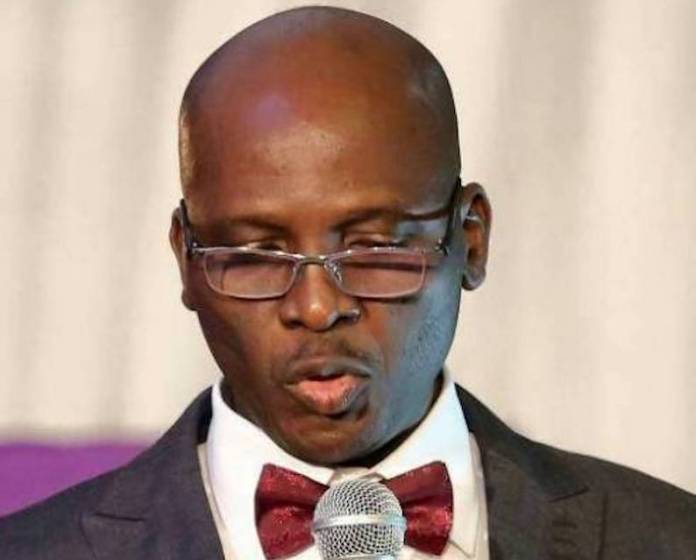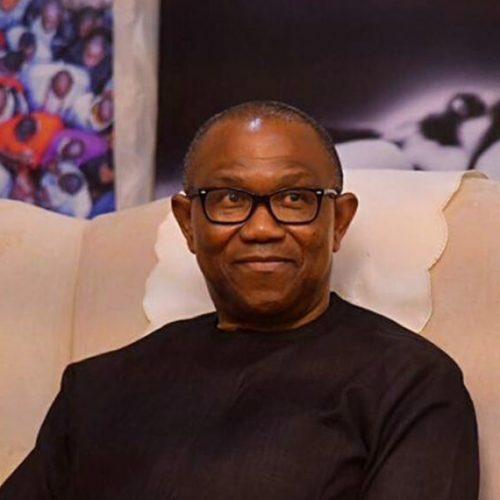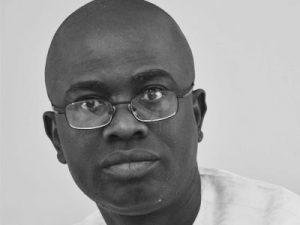The prevalent words of wisdom designed to help people who are disposed to expecting much more than life can and should provide is that: there is no angel in Nigeria…no one should expect angels in Nigerian politics. Some even go as far as insisting that if some celestial beings choose, by an unexpected grace of providential amnesty, to come into the Nigerian power grid, and take a grip of the control towers, they would – sooner than later – be co-opted, conscripted and conditioned into shedding their pristine garbs to join the ‘roforofo’ scramble for levers of more power – flaunting and wielding their posts and perks with a dexterity that would astound the Almighty. Such is the dark and dim view not a few Nigerians have of their country and her controllers.
Yet, we must not all throw in the towel and turn our backs on our country, and the minions raping her. We must find courage and gumption somewhere deep down in the bowels of our humanity, and demand for the emergence of the best and tolerable amongst us, to start the process of redemption and re-calibration. We must stop laughing at and lampooning new faces and fringe-dwellers who have the courage to seek public offices – on the lame excuse that they are merely looking for their own seats at the table so as to steal and siphon the proverbial national cake.
My people wisely say: if you don’t get used to buying ‘lies’, you may miss the opportunity of buying the ‘truth’. It presupposes that we must not give up on giving unknown qualities the space and opportunity to show what they can do. Perhaps…. After all, by self-promoted delusion or uncritical surrender of our suffrage, we have elected, acquiesced or serenaded 14 individuals whose regimes or tenures have laid the foundation and background of our current dilemma and disenchantment, since independence in 1960. Let us remind ourselves, for the umpteenth time, how far back the rain and hails have been beating us – a past bedecked with grand larceny, brutish demonstration of power, and sundry acts of prebendalism, incompetence and political blindness.
In the beginning was the great Zik, who essentially talked us into disproportionate independence without requisite unanimity of purpose and interest. Chief Nnamdi Azikiwe, alongside his compatriots, simply wanted the foreigners out of our hair, even when it was glaring the distortions and enmity planted by the colonisers were evident and unwavering. We became a republic, nonetheless – the governor of our own fates. Yet, the fissures widened.
Less than six years after the independence, it was the providential benefactor of Nigeria’s first, but largely unsuccessful coup, Major General Johnson Aguiyi-Ironsi, the most senior Nigerian military officer, who promulgated Decree No. 34 in May 1966, after rescuing Nigeria from trudging into further political and ethnic mayhem. The diktat infamously called “unification decree”, cancelled all vestiges of the “federal system” practised in Nigeria from her independence. Admittedly, Aguiyi-Ironsi meant well, he was hoping the decree would be pivotal in stemming “tribal loyalties and activities which promote tribal consciousness and sectional interests and which must give way to the urgent task of national reconstruction.” [Unfortunately, the task is still crying for closure…in 2022!]
The reconstruction Aguiyi-Ironsi envisaged, after the enforced interregnum, would have dovetailed into returning power to democratically elected persons, but that was harshly aborted six months into his rule when he was assassinated in July 1966. A young Lieutenant Colonel, Yakubu Gowon took over the unitary power after some mindless and vengeful putsch spearheaded by few Northern army officers. Gowon, barely in his thirties, took Nigeria into a terrifying civil war, and subsequently concretised and deepened the pegs and throttles of the unitary system of government. He created more states that were no more than vassals of the federal government, and eventually reneged on his promise to return to civilian democracy. Though he served the longest in power (almost nine years), his tenure was strewn with uncharitable incidents and sundry issues that were less than sterling.
When the burly and brusque Major General, Murtala Ramat Muhammed (36) emerged via a bloodless coup in July 1975, Nigerians heaved a sigh of wary relief. He blustered through our indolent space and pernicious ways of life. His activism and populist tendencies rankled a few, and he was gunned down in a blistering, spectacularly unsuccessful coup on February 13, 1976. The shortness and velocity of his reign endeared him to Nigerians for decades – a quality none before or after him had attained.
His reluctant deputy, Olusegun Obasanjo took over with a tear-filled promise to continue in Mohammed’s footsteps. By the time Obasanjo handed over to a political stalwart, Alhaji Shehu Shagari, on 1 October 1979, he had ‘conjured’ a federal constitution (1979) which was more or less self-reinforcing in the dynamics of unitary practices (the root cause of the widely disparaged 1999 constitution which OBJ fortuitously inherited); and then the heartwarming capacity to eventually hand over to a civilian regime for the start of our second experience as a republic – warts and all. [His second coming as the 12th ruler (but as a civilian) was a little improvement in the estimation of keen observers. Yet, many expected much more than he delivered in the two terms he served as Nigerian president between 1999 and 2007.]

The second attempt, in 1979, at civilian democracy was catastrophic in its inability to provide bottom-line dividends for ordinary Nigerians, and it was therefore heartily received the news of its abrupt upturn in a 1983 military coup d’état which produced Major General Muhammadu Buhari. The seventh Nigerian ruler was more associated with draconian decrees and terror-laden rhetoric, whereas his predecessor was accused of lethargy and unbridled slothfulness. [Incidentally, Buhari returned as a civilian president, and a little more contrite, in 2015 – he is still serving his second term as we write, battling to leave a more worthwhile legacy].
However, it was no surprise that the Buhari regime fell like an abandoned shanty in August 1985 when Ibrahim Badamasi Babangida, the erstwhile chief of army staff, and a major general seized power in a bloodless coup. When he was eventually forced to retire from both the military and governance on August 26, 1993, IBB was majorly remembered for the notoriety of the annulment of the June 12, 1993, presidential election – and the toil, torment, and tragedy that ensued for many years subsequently.
There was a Chief Ernest Shonekan – a two-and-a-half-month footnote in 1993 – only as a doorway for the grand and inglorious entry of Nigeria’s most bitterly defined ruler, Lt. General Sani Abacha. He ruled with fangs, bullets, goggles and magnetic fingers between 1993 and 1998. By the time he exited this space, in controversial mystery, hardly did anyone mourn his absence – in deference to his acts, ways and wiles.
And there was the self-effacing interjector, Lt. General Abdulsalami Abubakar, who in less than one year, tidied up the tragically flawed transition rigmarole of IBB, and the obnoxious toxic discharges of Abacha, to conduct elections and hand over power to a new civilian administration. Without needless fuss, he chaperoned the fourth republic we still enjoy today.
However, the fourth republic is not renowned for men of great reckoning in actions and imaginations – Alhaji Umaru Musa Yar’Adua and Dr. Goodluck Ebele Jonathan passed the portals of power, and while their supporters may carry placards of plaudits and pageantry regarding some achievements or mementos, ultimately, posterity may be less charitable.
(To Continue)



















